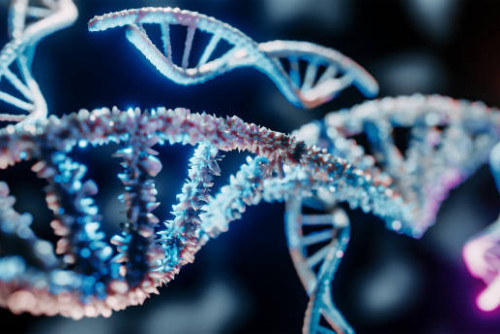University Studies: Natural Sciences AA Degree
University Studies – 18 Unit Emphasis | SC Program: AA.1512
The Natural Sciences emphasis is designed to provide lower division major courses to transfer to a university and pursue baccalaureate degrees in life science and physical science areas.



Choose your path
Map your education by viewing the program map for the degree or certificate you’re interested in earning below. Meet with a counselor to create your official comprehensive education plan.
A program map shows all the required and recommended courses you need to graduate and a suggested order in which you should take them. The suggested sequence of courses is based on enrollment and includes all major and general education courses required for the degree.
Fall Semester, First Year
16 Units TotalIn this course, students receive instruction in academic reading and writing, including writing processes, effective use of language, analytical thinking, and the foundations of academic research. An argumentative research essay is required for the successful completion of the course. This course may be offered in a distance education format.
This course is a survey of the history of the United States from Pre-Columbian Peoples to the end of Reconstruction. Topics include contact and settlement of America, the movement toward independence, the formation of a new nation and Constitution, westward expansion and manifest destiny, the causes and consequences of the Civil War, and Reconstruction. This course satisfies the CSU requirement for US History (US-1). This course may be offered in a distance education format.
This course is a survey of inorganic chemistry and some organic chemistry suitable for agriculture and nursing students. The basic fundamentals of the metric system, chemical nomenclature, atomic and molecular structure, chemical reactions, energy changes, states of matter, solutions, chemical equilibria and kinetics, and organic functional groups are presented. The quantitative nature of chemistry is developed by introduction of the Avogadro's number and the mole and continuing with stoichiometry, gas law, solution concentrations, and pH calculations. The lecture/discussion portion of this course may be offered in a distance learning format.
Spring Semester, First Year
14 Units TotalThis course is an introduction to the physical processes that drive Earth as a dynamic planet. Both internal and external processes are considered as well as their inter-relationships. Discussion in the course will include Earth's internal structure, plate tectonics, minerals and rocks and their origins, surface processes, geologic structures such as faulting and folding, metamorphism, sedimentation, soil formation, geologic time including radiometric methods, geologic hazards such as earthquakes, volcanism, mass wasting, flooding, and the vital nature of Earth materials to society. Laboratory activities will focus on the application of classroom concepts and will include mineral and rock identification, geologic structures, topographic and geologic map use, use of remote imagery, recognition of landforms, geologic time, seismology, and volcanism. Lecture and laboratory will consider geologically produced and influenced natural resources, their exploitation, and concepts centered on sustainable uses. The lecture portion of this course may be offered in a distance education format.
Note: This course includes required field trips that may extend past normal class times.
This Botany course is intended for science majors and covers comparative diversity, structure, and function of major plant and plant-like groups. Topics include plant development, morphology and physiology, taxonomy and systematics, ecology, and ethnobotany. This course may be taught in a distance education format.
Fall Semester, Second Year
15 Units TotalThis course is an introduction to government and politics in the United States and California. Students examine the constitutions, structure, and operation of governing institutions, civil liberties and civil rights, political behaviors, political issues, and public policy using political science theory and methodology. This course may be offered in a distance education format.
This course is for science and engineering majors which covers the nature of atoms, molecules, and ions; chemical reactions; precipitation, oxidation-reduction, and acid/base chemistry; stoichiometry; electronic structure; periodicity; chemical bonding and molecular structure; properties of solids, liquids, and gases; and an introduction to thermodynamics and solutions. The lecture and discussion portions of this course may be offered in a distance education format.
Spring Semester, Second Year
15 Units TotalThis course takes an interdisciplinary approach to the study of race and ethnicity in the United States. It examines social justice movements in relation to ethnic and racial groups in the United States to provide a basis for a better understanding of the socioeconomic, cultural, and political conditions among key social groups including, but not limited to, Native Americans, African Americans, Asian Americans, and Latina/o Americans. This course examines the systemic nature of racial/ethnic oppression through an examination of key concepts including racialization and ethnocentrism, with a specific focus on the persistence of white supremacy. Using an anti-racist framework, the course will examine historical and contemporary social movements dedicated to the decolonization of social institutions, resistance, and social justice. This course may be offered in a distance education format.
An introduction to chemical kinetics, nuclear chemistry, transition metals, and organic chemistry; along with continued, in-depth study of equilibrium, thermodynamics, electrochemistry, acid-base and solution chemistry. The lecture and discussion portions of this course may be offered in a distance education format.
Please see a counselor to discuss options for meeting general education requirements for transfer to California State Universities (CSU) and/or University of California (UC) campuses, as well as any specific additional courses that may be required by your chosen institution of transfer.
*Alternative Courses: Please see a Shasta College counselor for alternative course options. You can also view the following to find other courses to meet degree/certificate requirements:
- California State Universities – General Education
- IGETC – Intersegmental General Education Transfer Curriculum
Contact Us for More Information
Counseling & Student Services
Contact InfoAcademic/Instructional Division Office
Start Your Future at Shasta College
We are dedicated to helping you reach your educational and career goals. To begin your journey, apply for admissions today!
